20 Reasons to Eat Free-Range Eggs
If you’re anything like me, you probably start your day with a hearty breakfast, and what’s a breakfast without eggs, right? But have you ever stopped to think about where those eggs come from and how the hens that lay them are treated? Well, let me introduce you to the beautiful world of free-range eggs. I want to share at least 20 reasons to eat free-range eggs. Egg Cartons/Crates
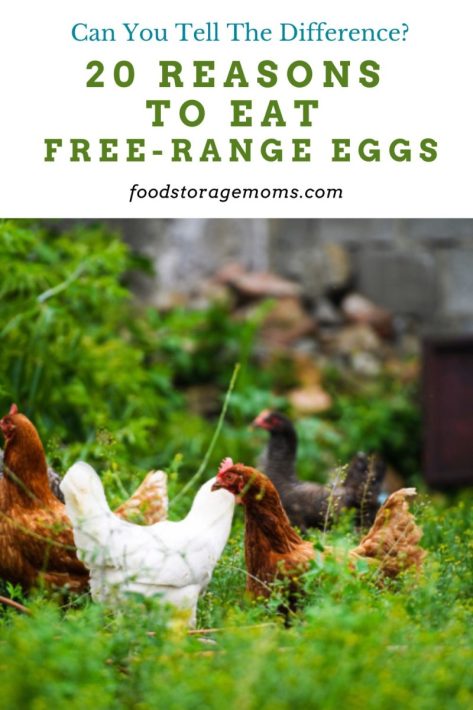
20 Reasons to Eat Free-Range Eggs
1. Happy Hens, Tasty Eggs
Let’s start with the basics. Free-range eggs come from hens allowed to roam outdoors, pecking at bugs, vegetation, plant seeds, and living their best chicken lives. And happy hens lay some delicious eggs! 20 Reasons Why You Should Consider Getting Chickens
2. Better Nutrition
Studies have shown that free-range eggs tend to have higher levels of certain nutrients like omega-3 fatty acids, vitamin E, and beta-carotene than eggs from caged hens.
3. Omega-3 Powerhouse
Speaking of omega-3s, free-range eggs are like little nutrient bombs packed with these healthy fats, which are great for your heart and brain health.
4. No Hormones or Antibiotics
Free-range hens are raised without hormones or antibiotics, so you can feel good about what you’re putting into your body. What Are Natural Antibiotics for Humans?
5. Richer Yolks
Ever crack open a free-range egg and notice how vibrant the yolk is? That’s because these eggs are typically higher in carotenoids, which give the egg yolks that beautiful golden color.
6. Supports Ethical Farming
By choosing free-range eggs, you’re supporting farmers who prioritize the welfare of their animals and follow ethical farming practices. 10 Budget-Friendly Ways to Transform Eggs into Delicious Meals
7. Environmental Benefits
Free-range farming often involves more sustainable practices, which can positively affect the environment, like reducing pollution and preserving natural habitats.
8. Boosts Local Economies
Many free-range egg producers are small-scale and local, so buying their eggs helps support your community’s economy. How To Be Prepared For An Economic Collapse There may be large companies that produce commercial eggs in your vicinity, but most of those send funds to their headquarters elsewhere. They also typically don’t follow hen-friendly practices and keep the egg-producing hens in their production facilities in small cages with a minimum of space.
9. Encourages Outdoor Activity
When you choose free-range eggs, you support a system encouraging hens to get outside and engage in natural behaviors like scratching and dust bathing as they generate their pasture-raised eggs in an open outdoor space.
10. Less Stress for Hens
Unlike their caged counterparts, free-range hens have more space to move around and exhibit natural behaviors, which can help reduce stress levels. 20 Tips For Feeling Less Stress While Prepping Food Storage
11. Variety of Flavors
Free-range eggs can come in various flavors depending on what the hens eat, from nutty to buttery, adding an extra dimension to your culinary creations. The farmers may supplement the naturally grown foods with corn, soy, or other grains. Make sure you’re buying eggs that have organic egg labeling so you get GMO-free eggs.
12. Great for Baking
If you’re a baker, you’ll love the rich texture and flavor that free-range eggs can bring to your cakes, cookies, and other treats. 10 Essential Ingredients You Need When Baking
13. Supports Animal Welfare
By choosing free-range eggs, you’re sending a message that you care about the welfare of farm animals and believe they deserve to live happy, healthy lives.
14. Lower Risk of Contamination
Free-range hens are less likely to contract diseases associated with overcrowded conditions, reducing their eggs’ contamination risk.
15. Fresher Eggs
Free-range eggs often come from smaller, local farms, which means they’re more likely to be fresher than eggs that have traveled long distances to reach your grocery store through typical shipping channels. 15 Surprising Uses for Eggshells
16. Reduced Risk of Salmonella
While no egg is entirely free of the risk of salmonella, free-range eggs have been shown to have a lower incidence of contamination compared to eggs from caged hens.
17. Supports Biodiversity
Free-range farming methods often involve rotating crops and allowing hens to forage in natural environments, which can help promote biodiversity in agricultural landscapes.
18. Connects You to Your Food
When you buy free-range eggs, you’re not just buying a product; you’re connecting with the farmers and the land where your food comes from, fostering a deeper appreciation for the food on your plate. Frugal Ways To Preserve Your Food Today For Tomorrow
19. Sustainable Agriculture
Free-range farming practices with pastured eggs prioritize sustainability by minimizing waste, conserving natural resources, and promoting animal welfare, making it a win-win for both people and the planet. Why Living on a Farm is Still a Great Idea
20. They Taste Better!
Last but not least, let’s not forget the most important reason: free-range eggs taste better! Whether you’re frying them up for breakfast or using them in your favorite recipes, you’ll notice the difference in flavor and quality.
What’s the latest information about eggs and cholesterol?
Eggs do have more cholesterol than many other foods, but they have been shown to contain many beneficial nutrients. When you eat an egg or two each day you will eat less cholesterol than expected and you won’t add to the risk of heart disease often thought. The mineral, vitamin, antioxidant, and protein levels found in eggs add to a healthy diet we all need. They also have essential amino acids desired for a well-balanced diet.
Egg yolks also contain lutein which is a type of vitamin called a carotenoid. Lutein is found in other healthy foods like broccoli, kale, corn, spinach, grapes, zucchini, and squash.
Eggs also have a wide range of vitamins and minerals, including vitamins D, B12, B2, B5, A, Choline and iron. These help maintain a strong body, but also add to your brain function. Vitamin D has been shown to help maintain healthy bones and teeth, especially important as we age.
More Tips
Final Word
So there you have it—twenty reasons to eat free-range eggs. They are better for you and the hens, support sustainable farming practices, and taste delicious. So next time you’re at the grocery store, do yourself (and the hens) a favor and reach for those free-range eggs. May God Bless this World, Linda
Copyright Images: Free Range Chicken Eating Depositphotos_195705786_S By Andreaobzerova, Chicken On A Farm Depositphotos_272440040_S By Yulia-zl18

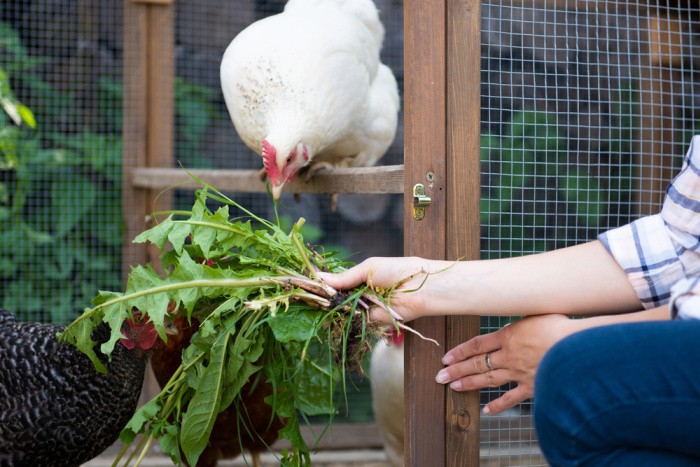



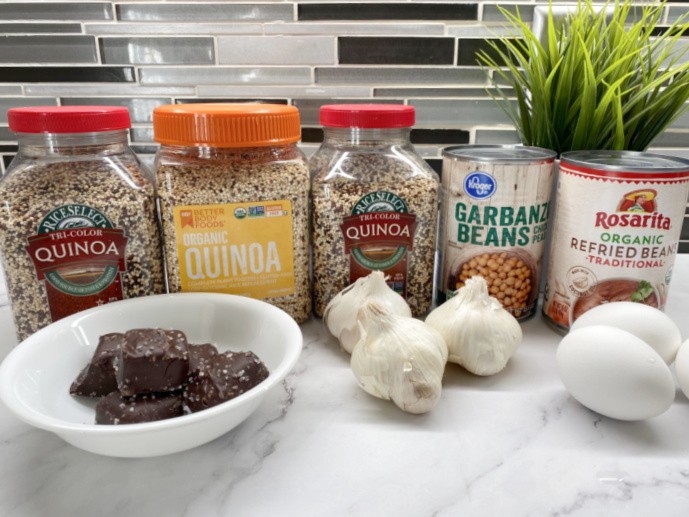


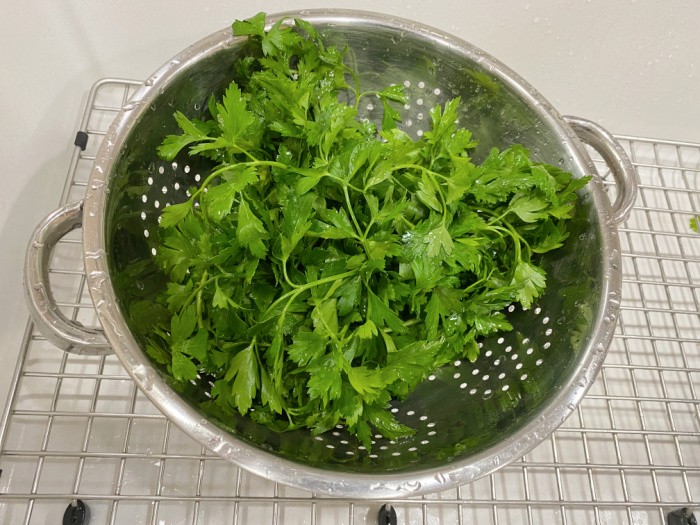







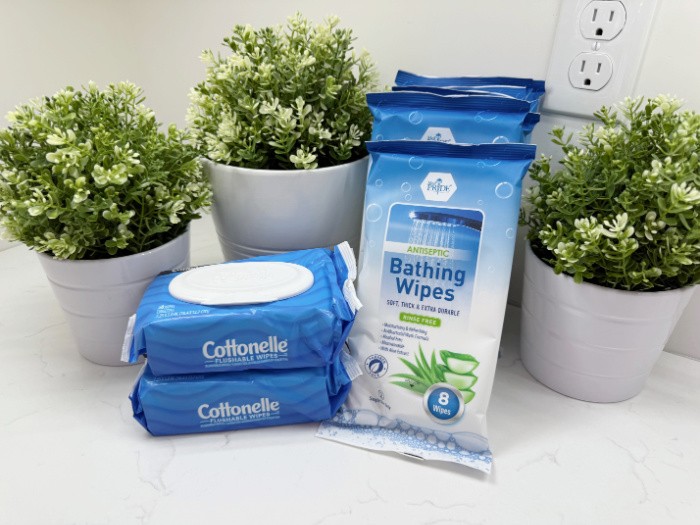





My front and back are separate fence. You go to the front mayflies are everywhere. You go to the back and there are no bugs. Zilch
The girls wipe them out. I’ve got 6 new chicks I kicked from the brooder to the main coop week before last and they are death on anything moving. Watching them come into their own and be chickens is fun.
I can’t hardly go to a breakfast restaurant and eat them eggs anymore.
They are relaxing as well. I spend evenings with them before they roost and they talk and have personalities.
Hi Matt, oh my gosh, I LOVE this comment. I can picture them running around with their own personalities, they have a great life at your home. And so do you, life is good with the simple things in life. And zero bugs thanks to them. Love this, Linda
I am farm sitting at my daughter & son-in-law’s this week. I don’t know how many hens they have but I routinely get 18-24 eggs per day. They also have 20-25 pullets that will go into the population in a few weeks. My daughter sells some (I just sold 5 dozen a couple of days ago). She also preserves eggs for the winter when production is down! She says they are a bit different after liming them but still very good. That would be a definite difference between free-range and store-bought eggs. They also have 30 meat chickens free-ranging. It doesn’t take as much time caring for the meat birds because they are not old enough to lay eggs at this point and will be processed and in the freezer before they do start laying. But the laying hens tend to lay in the nesting boxes in the coop as well as outside, so it is an egg hunt finding all the eggs!! LOL! That is where the work comes in!
I didn’t even know what I was missing when I grew up and was on my own. I grew up with fresh free-range eggs and chickens but when I left home, I was buying eggs from the store. They were very pale by comparison and had very little flavor. The yolks from the store-bought eggs are/were a very pale yellow whereas farm fresh eggs are closer to orange! BIG difference.
Give me farm fresh, free-range eggs and meat any day of the week.
Hi Leanne, oh my gosh, I bet you are having a great time hanging out on your daughters farm! Plus you get to gather eggs! Oh my gosh, you are living the life even if it’s only part-time! LOVE this, Linda
I really just started noticing the difference between free range and cage free. I’m so glad I saw these tips too, so that I can get an even better understanding.
Hi Jess, thank you for your kind words, my sweet friend. We all learn new things together! Linda